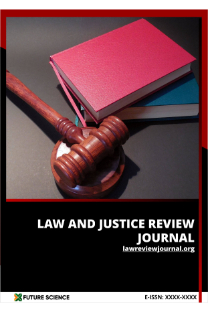The enforcement of the principle of non-refoulement in cases mass-influx
___
Alice Farmer, Non-Refoulment and Jus Cogens: Limiting Anti-Terror Measures that Threaten Refugee Protection, Georgetown Immigration Law Journal, Vol. 23, Issue 1 (Fall 2008), pp. 1 38Astri Suhrke, Burden-sharing during Refugee Emergencies: The Logic of Collective versus National Action, Journal of Refugee Studies, Vol. 11, Issue 4 (1998), pp. 396 415.
Atle Grahl-Madsen, Refugees and Refugee Law in a World in Transition, Michigan Yearbook of International Legal Studies, (1982), Vol. 3, pp. 65 90.
Deborah Perluss, Joan F. Hartman, Temporary Refuge: Emergence of a Customary Norm, Virginia Journal of International Law, Vol. 26, Issue 3 (Spring 1986), pp. 551 626.
Guy S. Goodwin-Gill and Jane McAdam, The Refugee in International Law, Oxford University Press, New York 2011.
James Jupp, Terrorism, Immigration, and Multiculturalism, International Journal, Vol. 61, Issue 3 (Summer 2006), pp. 699 712.
Jef Huysmans, The European Union and the Securitization of Migration, Journal of Common Market Studies, Vol 38, No: 5 (December 2000), pp. 751 777.
Karen Jacobsen, Factors Influencing the Policy Responses of Host Governments to Mass Refugee Influxes, International Migration Review, Vol. 30, No.3 (Autumn, 1996), pp. 655 678.
Kay Hailbronner, Non-Refoulement and Humanitarian Refugees: Customary International Law or Wishful Legal Thinking, Virginia Journal of International Law, Vol. 26, Issue 4 (Summer 1986), pp. 857 896.
Kemal Kirişci, Legal Status of Asylum Seekers in Turkey: Problems and Prospects, International Journal of Refugee Law, Vol. 3, Issue 3 (July 1991), pp. 510 528.
Nuray Ekşi, Yabancılar Hukukuna İlişkin Temel Konular, Beta Publishing, 3. Edition, Istanbul 2011.
Nuria Arenas, The Concept of Mass Influx of Displaced Persons in the European Directive Establishing the Temporary Protection System, European Journal of Migration and Law, (7: Koninklijke Brill NV. Netherlands 2005), pp 435 450.
Paul Kuruk, Asylum and the Non-Refoulement of Refugees: The Case of the Missing Shipload of Liberian Refugees, Stanford Journal of International Law, Vol. 35, Issue 2 (Summer 1999), pp. 313 350.
Roda Mushkat, Mandatory Repatriation of Asylum Seekers: Is the Legal Norm of Non-Refoulement Dead?, Hong Kong Law Journal, Vol. 25, Part 1 (1995), pp. 42 51.
Scott M. Martin, Non-Refoulement of Refugees: United States Compliance with International Obligations, Harvard International Law Journal, Vol. 23, Issue 2 (Winter 1983), pp. 357 380.
Consultations on International Protection, Protection of Refugees in Mass Influx Situations: Overall Protection Framework, 1st mtg. U.N. Doc. EC/GC/01/4 (19 February 2001), parag. 9.
http://www.unhcr.org/3ae68f3c24.html accessed on 29 December 2011.
http://www.telegraph.co.uk/news/worldnews/europe/turkey/9196111/Kofi -Annan-visits-Syrian-refugees-in-Turkey-camp.html (accessed on 27 April 2012)
http://www.mevzuat.adalet.gov.tr/html/20075.html (accessed on 10 May 2012)
- ISSN: 1309-9485
- Yayın Aralığı: 2
- Başlangıç: 2010
- Yayıncı: Türkiye Adalet Akademisi
The concept of originality from a comparative Perspective
The enforcement of the principle of non-refoulement in cases mass-influx
The fifty years of the constitutional court of turkey (1962-2012)
Unrechtsausschluss durch einwilligung in der deutschen strafrechtsdogmatik
The rule of law conditionality of the European union and developments in Turkish judiciary
